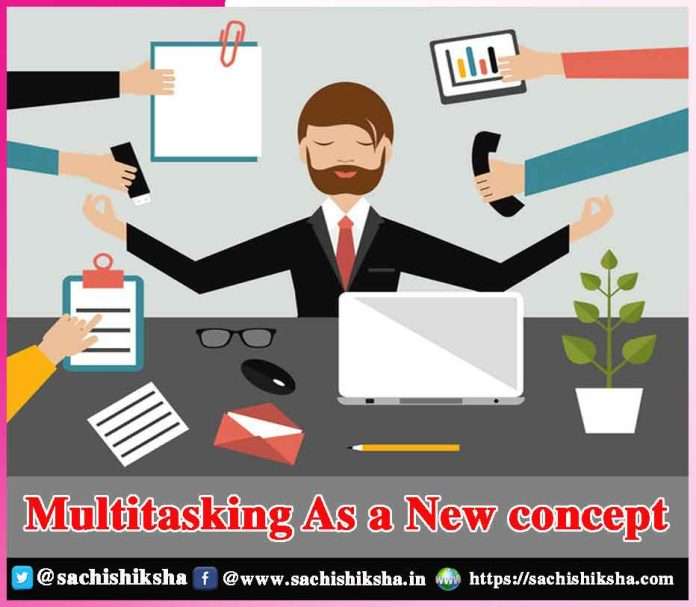Multitasking As a New concept
Introduction: Each of us takes great pride in the fact that we can perform more than two activities at once. We are all pleased to list this skill on our resumes. When they show this impression of their children that they can handle multiple tasks at once and insist that they act in this way even though they are incapable of doing so, many parents feel fulfilled.
However, juggling multiple tasks is not a virtue. Yes. Up until now, we have believed that multitasking is a skill that everyone should practise. However, a recent study found that multitasking is not the best alternative to practise. Here, we undervalue single-tasking.
Also Read:
- Ways to Inspire the Teen Brain
- An Appropriate Alternative is a Must
- Map Your Health Regularly For a Worry Free Life
- Women`s Safety Apps
Table of Contents
What is Multitasking?

The Downsides of Multitasking:
Work Quality is Impacted:
Our brains become confused when we are trying to focus on multiple things at once. “What do I do next? Does this information apply to the job we are now doing? Why are there so many sudden and changing stimuli for me? Hey, you! Please calm down or I’ll stop responding.” The mental turbulence will show in the quality of our final project.
Affects How Productive We Are?
We become less productive when we multitask because there are more distractions, we have trouble focusing, and the pace of the work slows down. We fail because of our incapacity to concentrate on one task at a time.
Negative Effects on Memory:
Multitasking may be detrimental to memory. When we multitask, we frequently shift our focus between various tasks. Our capacity to concentrate and focus may suffer as a result. Additionally, it could make it more challenging to remember knowledge. According to studies, people are more likely to forget the specifics of a task when they are stopped while performing it.
This is due to the fact that shifting the brain’s attention from one job to another requires disruption, which might prevent information from being consolidated into long-term memory. In addition, juggling multiple tasks can lead to information overload and working memory overload. This means that we might not be able to comprehend and store all the data we need to remember.
Single Tasking Has Greater Accuracy:
On the other hand, when we concentrate on a particular task, we may devote a greater amount of our cognitive abilities and attention to encoding and concentrating information into our long-term memory. We may remember things better and recall them with greater accuracy as a result. These studies demonstrate that multitasking may impair memory. Keeping your attention on one task at a time will help you strengthen your memory. Your ability to focus entirely on the subject at hand and your memory will both benefit from this.
Social life is Affected:
When we are immersed in our work, we lose touch with the outside world. More than anything, we should prioritize our personal and social lives. We may become less perceptive to and receptive to the needs and feelings of others while we are multitasking. For instance, when spending time with friends or family, if we are preoccupied with our phones or other activities, we may miss opportunities to support them and lose out on vital cues. It’s possible that we don’t fully participate and appreciate the moment when we multitask during social interactions. Our relationships may suffer as a result, missing out on chances to connect and becoming less satisfying.
Adverse Behavioural Changes:
Stress and anxiety brought on by multitasking might influence our behaviour and mood in social situations. Our interactions with others may suffer as a result of our feeling stressed, impatient, or distracted.
How to Avoid Multitasking:
Establish a Priority List:
Take some time to prioritize your chores when you have many to finish. You can then give your full attention to the tasks that are most crucial.
Break up Big projects into Smaller Ones:
They will appear more approachable and less intimidating as a result.
Distract Yourself No More:
This entails switching off your phone, ending email, and finding a quiet area to work in.
Consider Pauses:
Every 20 to 30 minutes, get up and walk around. You can stay motivated and prevent burnout by doing this.
Conclusion: Although doing multiple things at once may seem like a good way to accomplish more, this is not the case. You may increase productivity, reduce stress, and minimize errors by concentrating on one activity at a time.
















































